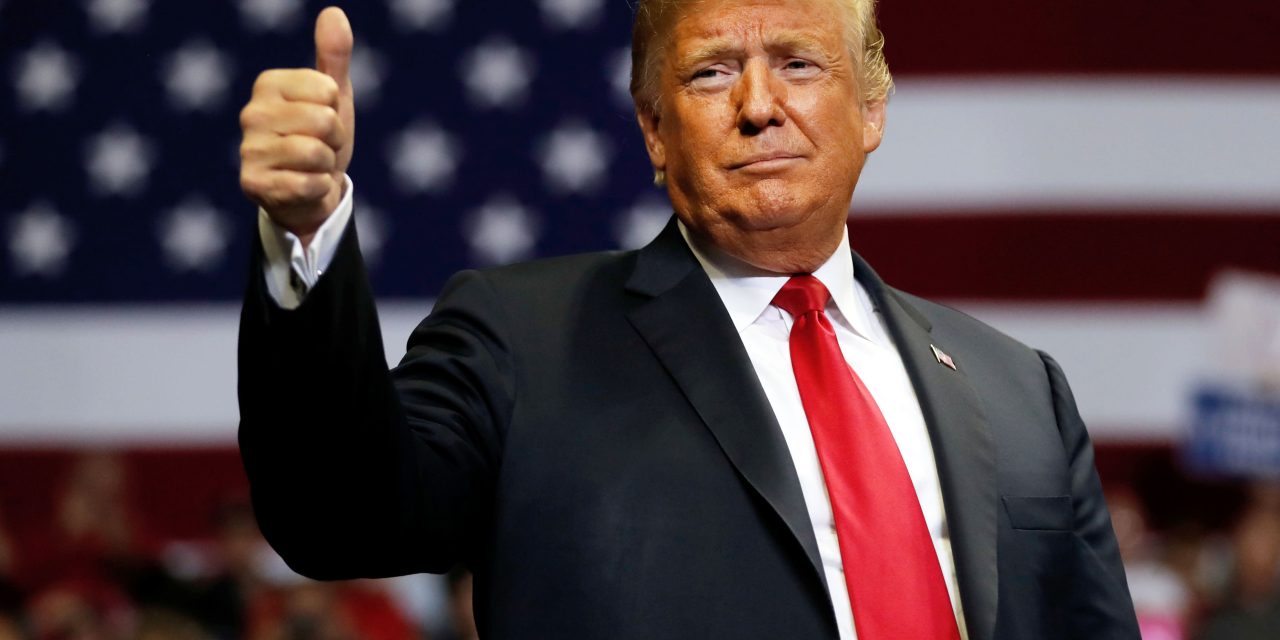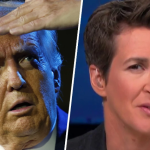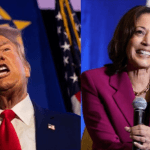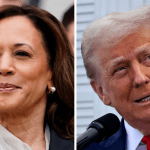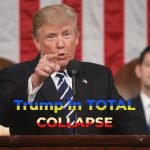Donald Trump Political Profile: Donald Trump’s political profile reads like a riveting novel with endless plot twists.
One cannot help but observe the dynamic nature of his ascendancy to the highest office. A billionaire real estate mogul turned reality television star, Trump’s entry into politics disrupted the traditional mould, captivating the public and media’s relentless gaze. His unorthodox approach, often stirring controversy and engendering stark polarization, defines a new epoch in American political discourse.
Early Political Beginnings
Trump’s political journey commenced with his flirtation with a potential Reform Party candidacy in 2000. Although this early endeavor did not materialize into a full-fledged campaign, it marked the beginning of his persistent forays into American political landscapes. It was not until 2015, however, that Trump announced his candidacy for the Republican nomination, ultimately capitalizing on widespread dissatisfaction with the establishment and leveraging his media prowess to secure the presidency in 2016.
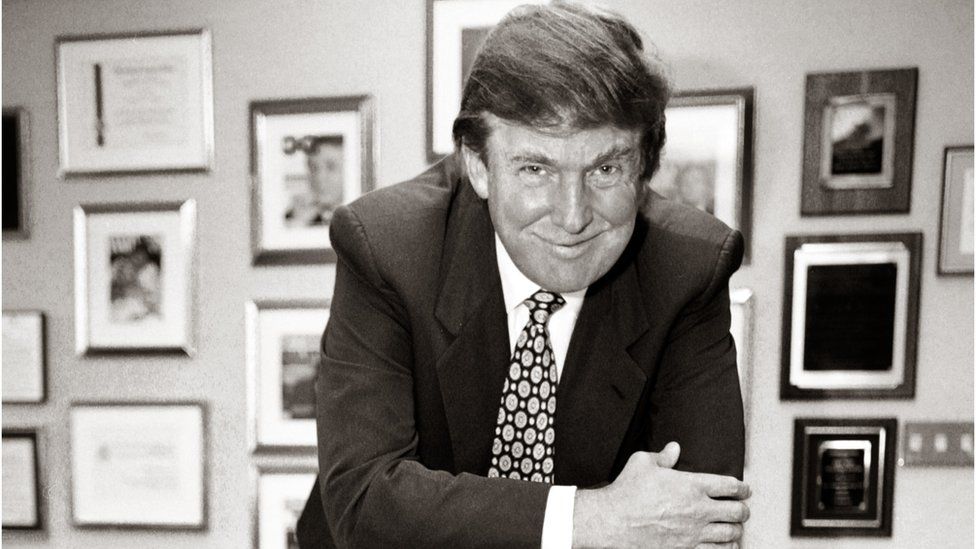
Entrance into Politics
Donald J. Trump’s entrance into politics was both abrupt and transformative, marking a seismic shift in American political dynamics.
Trump declared his candidacy on June 16, 2015, promising to “Make America Great Again”.
This event catalyzed an era of heightened political discourse characterized by stark polarization. Trump’s campaign utilized his business acumen, media presence, and provocative rhetoric to resonate with a substantial segment of the electorate, altering the conventional strategies employed in presidential campaigns.
His unexpected victory in the 2016 presidential election underscored the profound impact of his unorthodox approach, challenging existing political paradigms and reshaping the landscape of American politics.
Initial Campaigns
Donald Trump’s initial political campaigns were notable for their unconventional nature and populist appeal.
During his 2016 presidential campaign, Trump strategically positioned himself as an outsider challenging the status quo, harnessing the disillusionment prevalent among voters. His slogan, “Make America Great Again,” along with his promises to build a wall on the Mexican border and reinvigorate American manufacturing, resonated with a broad base of support.
Utilizing social media adeptly, Trump circumvented traditional media channels, allowing for direct and unfiltered communication with potential voters. The rallies he held were marked by high-energy, often controversial speeches that captivated media attention and amplified his reach dramatically.
These tactics, combined with a meticulously crafted image of a successful businessman, enabled Trump to dominate the Republican primaries and ultimately secure the Republican nomination. His subsequent general election strategy involved targeting key swing states, focusing on grassroots mobilization and leveraging the electoral college system to secure a decisive victory against his opponent, Hillary Clinton.
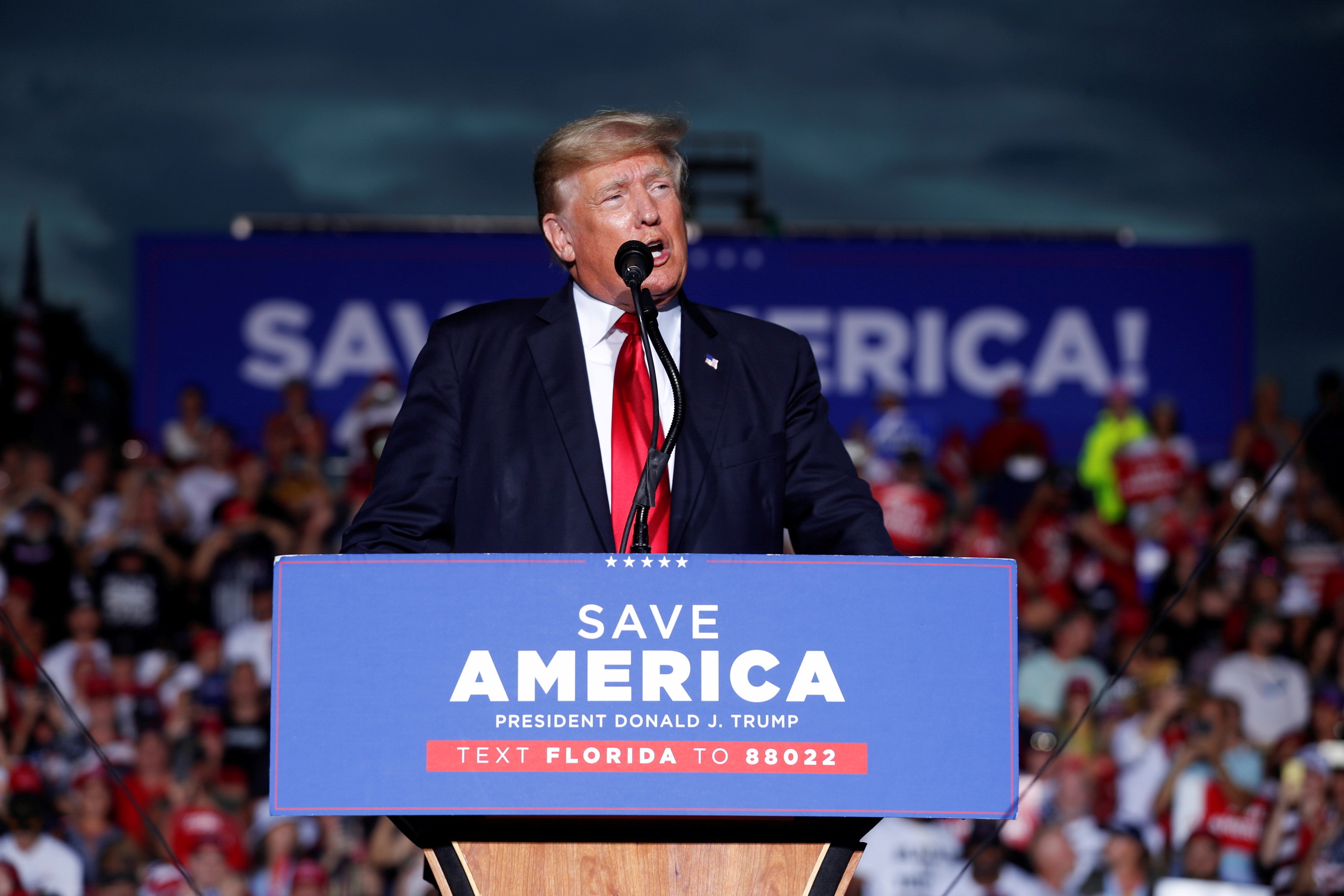
Presidential Term
Trump’s tenure as President was characterized by significant policy shifts, particularly in areas such as immigration, international trade, and deregulation. His “America First” approach established a new paradigm in U.S. foreign policy.
Several executive orders and landmark legislations defined his administration, including tax reforms and judicial appointments, which have had lasting impacts on the nation’s political landscape.
Key Policies
During his presidency, Donald Trump introduced several key policies that reshaped U.S. domestic and international affairs.
Immigration: Trump’s administration implemented stringent immigration policies, including the controversial family separation policy.
Tax Reform: The Tax Cuts and Jobs Act of 2017 significantly reduced corporate tax rates.
Trade Policy: Trump’s trade policies were focused on renegotiating NAFTA and imposing tariffs on China.
Healthcare: Repeated efforts were made to repeal and replace the Affordable Care Act, commonly known as Obamacare.
Deregulation: The administration undertook extensive deregulation efforts, particularly in the environmental and financial sectors.
Overall, these policies collectively showcased Trump’s commitment to reshaping traditional policy frameworks and prioritizing a nationalist agenda.
Controversies and Impeachments
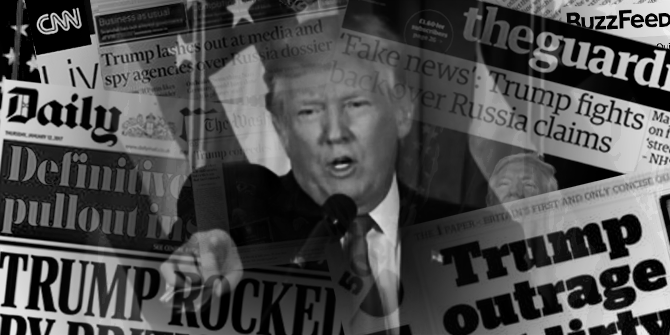
Donald Trump’s presidency was marked by a series of significant controversies and two historic impeachments.
- First Impeachment (2019): Charged with abuse of power and obstruction of Congress regarding Ukraine.
- Second Impeachment (2021): Accused of incitement of insurrection following the Capitol riots.
- Russian Interference: Persistent allegations and investigations into potential collusion with Russia during the 2016 election.
- Charlottesville Remarks: Controversial comments on the violent protests in Charlottesville, Virginia.
- Handling of COVID-19: Criticized for downplaying the severity and spread of the COVID-19 pandemic.
These events not only shaped Trump’s public image but also had a profound impact on the political climate in the United States.
Both impeachments were highly polarizing, reflecting and intensifying partisan divides.
Trump’s tenure was thus characterized by profound controversy, scrutiny, and unprecedented challenges.
Post-Presidency Influence
Since leaving office, Donald Trump has continued to exert considerable sway over the Republican Party, often endorsing candidates and shaping policy discussions. His influence is seen in the allegiance displayed by many conservative politicians, echoing his rhetoric and maintaining his agenda.
Moreover, Trump remains a highly visible public figure, leveraging media platforms and public appearances to maintain political relevance and mobilize his support base.
Continued Political Engagement
Since leaving the presidency, Donald Trump has remained actively involved in the political landscape, shaping narratives and rallying his supporters.
- Endorsements: Trump frequently endorses Republican candidates, significantly influencing primary races.
- Rallies: Regular rallies are held, reinforcing his connection with his base and promulgating his messages.
- Media Presence: Utilizes social media platforms and interviews to voice opinions and maintain visibility.
- Policy Advocacy: Continues to advocate for policies that align with his conservative agenda.
- Legal Battles: Faces ongoing legal challenges, which ironically bolster his martyr-like status among followers.
These actions ensure Trump’s continued prominence in American politics.
His engagement strategy plays a crucial role in shaping the Republican Party’s direction and policies.
By maintaining a formidable media presence, Trump ensures his political ideologies remain relevant and influential.
Trumpism and Republican Party
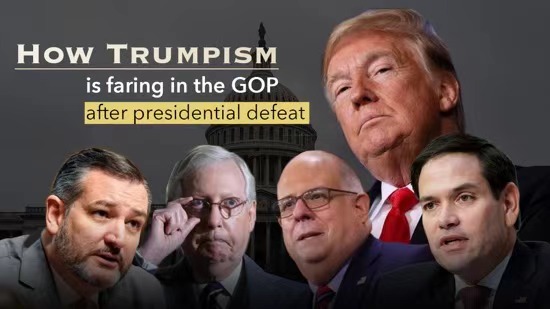
Trumpism has indelibly shaped the Republican Party’s ideology and strategy, emphasizing nationalism, populism, and skepticism towards globalization.
- Nationalism: Emphasises American sovereignty and prioritises domestic interests over international alliances.
- Populism: Engages directly with ordinary citizens, often bypassing traditional party structures.
- Economic Protectionism: Advocates for tariffs and trade policies aimed at protecting American industries.
- Immigration Control: Strongly opposes illegal immigration and advocates for strict border controls.
- Media Strategy: Utilises direct communication channels like social media to mobilise supporters and attack opponents.
This ideological shift has fostered deep loyalty among a significant portion of the Republican electorate.
Consequently, many Republican politicians have adopted Trump’s rhetoric and policies to align with their base.
As Trump remains a key figure, his influence on the party’s future direction is both undeniable and pervasive.
Legacy and Impact
Donald Trump’s legacy is deeply ingrained in the fabric of modern American politics, redefining the Republican Party’s approach and rhetoric. His tenure as President has engendered significant debate, with long-lasting implications for both domestic and international relations.
Trump’s administration has altered the political landscape, solidifying the prominence of populism and nationalism within the party. This shift continues to influence Republican strategies and governance.
Political Landscape Changes
Donald Trump’s entrance into the political arena marked a seismic shift in American politics, particularly within the Republican Party.
His unorthodox approach to campaigning disrupted traditional political norms.
Trump’s use of social media revolutionized political communication, enabling direct and unfiltered interaction with the electorate.
This unprecedented level of engagement allowed him to build a fervent base of supporters who felt directly connected to their leader. Consequently, political strategies have evolved to emphasize personal branding, populist rhetoric, and immediate responsiveness to public sentiment. By prioritizing these elements, Trump has not only changed the Republican Party but also altered the overall dynamics of political engagement in the United States.
Public and Media Perception
Donald Trump remains a polarizing figure.
Public opinion is deeply divided along partisan lines. The media landscape has often amplified this division, portraying Trump either as a disruptive maverick or a demagogue. Consequently, narratives around his tenure and influence vary significantly, reflecting the broader schism within American society.
Media portrayal has influenced public sentiment.
This polarization extends to reactions to his policies – for instance, his immigration stance was lauded by some as bold economic nationalism, while others criticized it as xenophobic. Both supporters and detractors have heavily relied on media interpretations to form their views.
Since leaving office, Trump’s media presence has persisted, with his recent 2023 presidential run being a focal point. This continued visibility underscores his enduring impact, as media outlets persist in covering his every move, maintaining his relevance in the political discourse.
Biography and Contacts
Donald Trump, the 45th President of the United States, is a businessman and television personality.
- Date of Birth: 14 June 1946
- Place of Birth: Queens, New York City, U.S.
- Political Party: Republican Party
- Education: Wharton School of the University of Pennsylvania
- Spouse: Melania Trump
- Children: Donald Jr., Ivanka, Eric, Tiffany, Barron
Before his presidency, he was renowned for his real estate ventures.
He was also the host of the reality TV show The Apprentice.
Voting Records
Donald Trump, being a prominent political figure, has had his actions and policies frequently scrutinized.
Throughout his tenure, his voting records reflect a nuanced approach towards various legislative measures, often aligning closely with the Republican Party’s core principles, particularly those advocating for lower taxes and deregulation. His stances were consistent with his broader political agenda center on economic nationalism and immigration reform.
Nonetheless, there were notable contradictions in his voting record. For instance, his support for substantial government spending during the COVID-19 pandemic starkly contrasted with the traditionally conservative stance advocating fiscal restraint.
As an outsider to the traditional political establishment, Trump’s voting patterns were as much an extension of his unorthodox approach as his public statements. His influence persists, with Republican Party members often aligning their votes to reflect the policies and priorities he championed during his presidency, demonstrating his enduring grasp on the party’s direction.
Campaign Finance
Donald Trump’s approach to campaign finance has been emblematic of his broader political strategies, prioritizing large donations from wealthy backers, a hallmark tactic among Republican candidates.
However, Trump’s fundraising also engaged substantial small-dollar contributions.
Amassing significant sums from grassroots supporters reflected his populist appeal.
Trump’s campaign successfully leveraged digital platforms for fundraising, employing sophisticated microtargeting techniques.
Trump’s re-election campaign outpaced his initial run, garnering extensive funds.
Furthermore, the former president’s approach has reshaped the political landscape. Future contenders borrowed his tactics for generating massive financial support.
Interest and Endorsements
Donald Trump’s political career has been marked by a keen ability to generate interest and secure endorsements.
In 2016, Trump emerged as a polarizing figure within Republican ranks, receiving high-profile endorsements that bolstered his credibility among conservative voters, which ultimately helped him secure the nomination.
His knack for rallying support around his candidacy catalyzed a series of endorsements from influential figures in politics, business, and media, amplifying his reach and impact on the electorate.
Additionally, Trump demonstrated a strategic approach to gaining endorsements, often focusing on securing the backing of individuals and organizations whose support could sway large voting blocs, further consolidating his base.
These endorsements were pivotal in driving media coverage, providing Trump with an invaluable platform to disseminate his message widely.
Final Opinion and Conclusion
Donald Trump’s political profile is one of the most polarizing in modern American history. His unconventional approach to politics, characterized by his direct communication style and populist rhetoric, has garnered both fervent support and intense opposition. His presidency brought significant changes to U.S. domestic and foreign policy, many of which continue to influence the political landscape. Whether one views his tenure as a period of necessary disruption or a departure from democratic norms, Trump’s impact on American politics is undeniable and will be studied for years to come.
This has been or our opinion and analysis on Donald Trump Political Profile
Want more highly researched information on votes, elections and Politics around the world visit: votebooster.org

